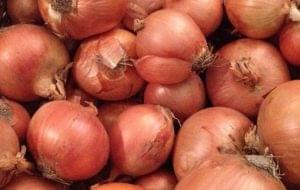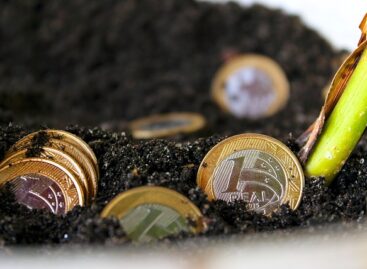Stable harvest, depressed prices – the Hungarian onion market shows a mixed picture this year
The 2025 season brought some surprises for Hungary’s open-field vegetable growers: instead of the 45–60 scorching days experienced in previous years, this year saw only 11 tropical days, while the cool July–August mornings proved particularly favorable for onions. As a result, average yields remained stable at 50–60 tons per hectare, although market prices are under pressure – said Varga István, Vice President for Open-Field Vegetable Production at FruitVeB, to Pénzcentrum.
Drought and Climate Change
 Although the more favorable summer weather benefited this year’s crop, the persistent winter and annual precipitation deficit – around 150–200 mm – remains a serious issue, threatening groundwater balance in the long term. European producers face similar challenges: in the Mediterranean, a cool and rainy spring reduced yields, while in the Netherlands an unusually warm summer brought the harvest forward by about two weeks, with crops entering the market much faster.
Although the more favorable summer weather benefited this year’s crop, the persistent winter and annual precipitation deficit – around 150–200 mm – remains a serious issue, threatening groundwater balance in the long term. European producers face similar challenges: in the Mediterranean, a cool and rainy spring reduced yields, while in the Netherlands an unusually warm summer brought the harvest forward by about two weeks, with crops entering the market much faster.
Situation in Hungary
Currently, around 1,700 hectares are dedicated to onion production in Hungary, almost entirely under irrigation. Drip and micro-irrigation technologies have become standard practices that help stabilize yields. However, there is a significant lag in storage capacity and post-harvest efficiency. To address this, FruitVeB and the Hungarian Chamber of Agriculture (NAK) are organizing joint conferences and training sessions.
Market Prices and Outlook
In mid-September, wholesale prices for second-class Hungarian onions stood at 220–240 HUF per kilo, while first-class onions sold for 250–270 HUF. Across Europe, producer prices hover around 30 eurocents per kilogram – not particularly low, but insufficient to ensure sustainable profitability. Current market conditions are shaped by both declining consumption and oversupply, leading to depressed short-term prices.
According to Varga István, the market will likely show a clearer picture by November–December. Until then, however, most producers are eager to sell their stocks quickly, which further intensifies price competition.










